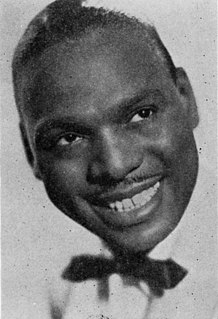A Quote by Robert Aris Willmott
The history of men of science has one peculiar advantage, as it shows the importance of little things in producing great results. Smeaton learned his principle of constructing a lighthouse, by noticing the trunk of a tree to be diminished from a curve to a cyclinder ... and Newton, turning an old box into a water-clock, or the yard of a house into a sundial, are examples of those habits of patient observation which scientific biography attractively recommends.
Quote Topics
Advantage
Biography
Box
Clock
Curve
Diminished
Examples
Great
Great Results
Habits
His
History
House
Importance
Learned
Lighthouse
Little
Little Thing
Little Things
Men
Newton
Noticing
Observation
Old
Patient
Peculiar
Principle
Producing
Results
Science
Scientific
Shows
The History Of
Things
Those
Tree
Trunk
Turning
Water
Which
Yard
Related Quotes
What struck me most in England was the perception that only those works which have a practical tendency awake attention and command respect, while the purely scientific, which possess far greater merit are almost unknown. And yet the latter are the proper source from which the others flow. Practice alone can never lead to the discovery of a truth or a principle. In Germany it is quite the contrary. Here in the eyes of scientific men no value, or at least but a trifling one, is placed upon the practical results. The enrichment of science is alone considered worthy attention.
I think men of science as well as other men need to learn from Christ, and I think Christians whose minds are scientific are bound to study science that their view of the glory of God may be as extensive as their being is capable. But I think that the results which each man arrives at in his attempts to harmonize his science with his Christianity ought not to be regarded as having any significance except to the man himself, and to him only for a time, and should not receive the stamp of a society.
How very seldom do you encounter in the world a man of great abilities, acquirements, experience, who will unmask his mind, unbutton his brains, and pour forth in careless and picturesque phrase all the results of his studies and observation; his knowledge of men, books, and nature. On the contrary, if a man has by any chance an original idea, he hoards it as if it were old gold; and rather avoids the subject with which he is most conversant, from fear that you may appropriate his best thoughts.
History, in [Nietzsche's] view, belongs to him who is fighting a great fight, and who needs examples, teachers and comforters, but cannot find them among his contemporaries. Without history the mountain chain of great men's great moments, which runs through millennia, could not stand clearly and vividly before me.
The popularisation of scientific doctrines is producing as great an alteration in the mental state of society as the material applications of science are effecting in its outward life. Such indeed is the respect paid to science, that the most absurd opinions may become current, provided they are expressed in language, the sound of which recals [sic] some well-known scientific phrase.
Imagination is the Discovering Faculty, pre-eminently ... It is that which feels & discovers what is, the REAL which we see not, which exists not for our senses... Mathematical science shows what is. It is the language of unseen relations between things... Imagination too shows what is ... Hence she is or should be especially cultivated by the truly Scientific, those who wish to enter into the worlds around us!
The result of [the] cumulative efforts to investigate the cell - to investigate life at the molecular level - is a loud, clear, piercing cry of 'design!' The result is so unambiguous and so significant that it must be ranked as one of the greatest achievements in the history of science. The discovery rivals those of Newton and Einstein, Lavoisier and Schrödinger, Pasteur, and Darwin. The observation of the intelligent design of life is as momentous as the observation that the earth goes around the sun.
The work of science has nothing whatever to do with consensus. Consensus is the business of politics. Science, on the contrary, requires only one investigator who happens to be right, which means that he or she has results that are verifiable by reference to the real world. In science consensus is irrelevant. What is relevant is reproducible results. The greatest scientists in history are great precisely because they broke with the consensus.
We should realize that, if [Socrates] demanded that the wisest men should rule, he clearly stressed that he did not mean the learned men; in fact, he was skeptical of all professional learnedness, whether it was that of the philosophers or of the learned men of his own generation, the Sophists. The wisdom he meant was of a different kind. It was simply the realization: how little do I know! Those who did not know this, he taught, knew nothing at all. This is the true scientific spirit.

































